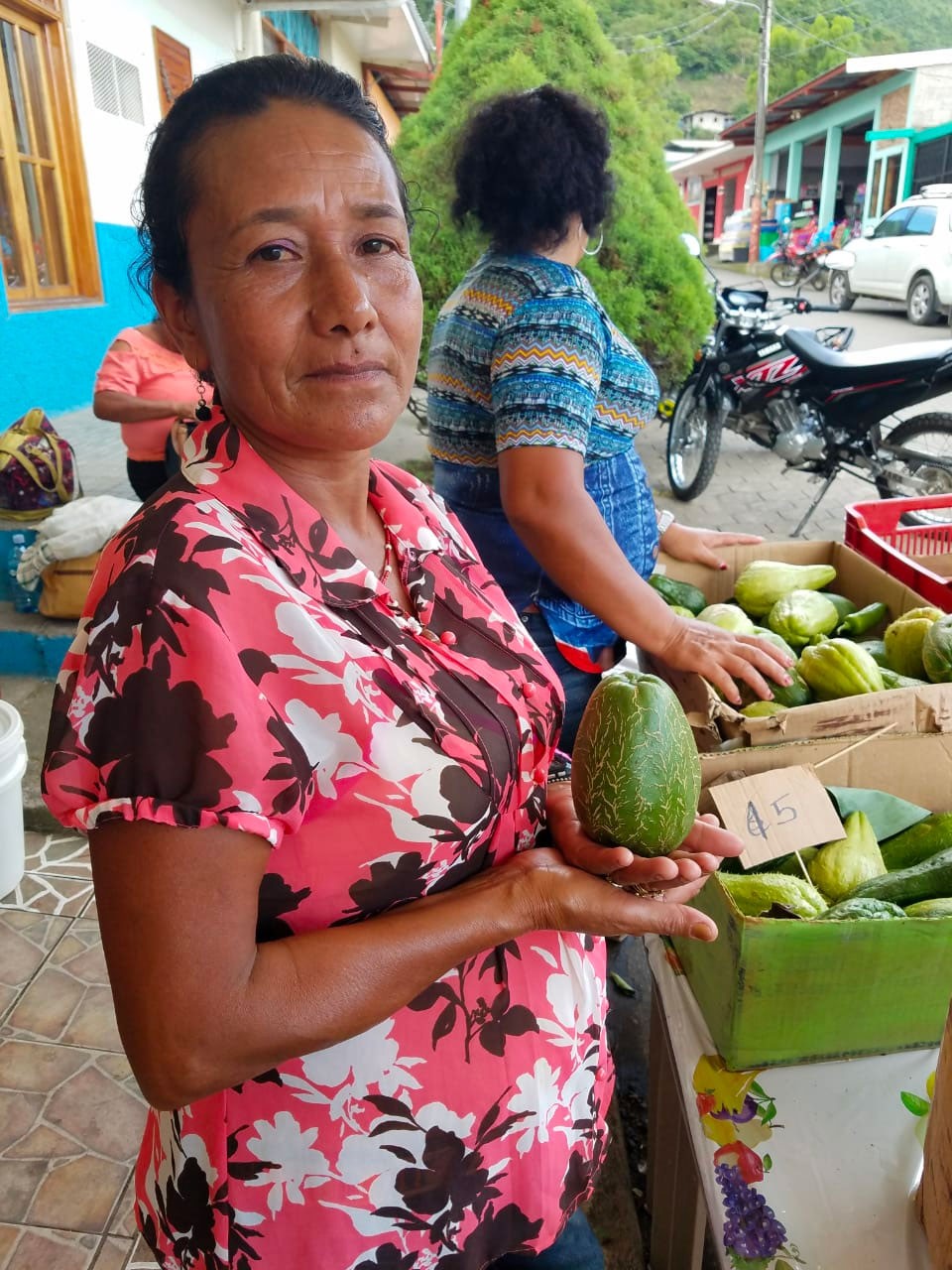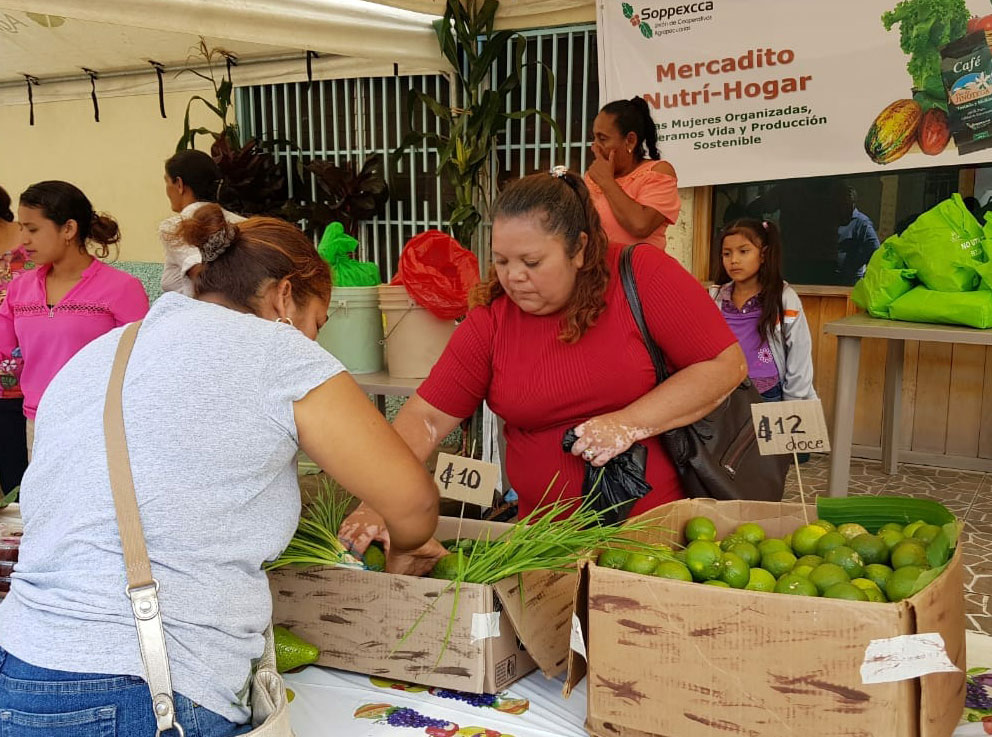Nicaragua:
SOPPEXCCA
Building independent women entrepreneurs: organic home gardens & a farmers market.
Jinotega, Nicaragua
Partner since 2011
520 small-scale farming families
SOPPEXCCA is a coffee cooperative of 520 member-families in Jinotega and Matagalpa, Nicaragua. On average, families grow around five acres of coffee, and own about 8.6 acres of land in total. Low income from coffee, combined with the lack of access to healthy food or a secure social safety net leaves most families vulnerable — facing three and a half months of food insecurity — every year.
We’ve worked with SOPPEXCCA since 2011, developing and implementing long-term strategies to reduce seasonal hunger and help families build a more secure and diverse economic foundation, right on their farms. Strategies have ranged from crop diversification to school gardens, soil and water conservation, and food security education for hundreds of families.
The Opportunity
Due to the lack of government support or a social safety net, organizations like SOPPEXCCA serve as a critical resource for their communities. The co-op has strong leadership and active members, and has established a Food Security Committee that spearheads programs within their overall strategic plan. Even so, members lack access to locally-produced fresh food, and women members – most of whom have not completed elementary school – have few opportunities to earn their own income.
“When women have access to the means of production of food, they have access to local markets and can move toward economic independence.”
~ Fatima Ismael, Director of SOPPEXCCA
The Diagnosis
 In 2017 we began working with SOPPEXCCA to develop Jinotega’s first-ever organic farmers market. Many women in our home garden project had become skilled enough to meet their families’ needs, and they now wanted to build new sources of income by selling their surplus produce.
In 2017 we began working with SOPPEXCCA to develop Jinotega’s first-ever organic farmers market. Many women in our home garden project had become skilled enough to meet their families’ needs, and they now wanted to build new sources of income by selling their surplus produce.
2018 was a particularly difficult time to launch this new venture, as the co-op and its members reeled from a political crisis that shut off access to many communities. Even with this major roadblock, these women were still able to supply their families with fresh food and provide for their neighbors as well.
By the end of the year, the situation improved and we launched the new market. These home gardens provided much-needed stability during the crisis; now, the market, located at SOPPEXCCA’s headquarters in Jinotega, began to deliver regular income.
Key Strategies
- Training in food security concepts and best practices for families and young people.
- Strategic crop diversification for food security, including cultivation of beans and corn, construction of a grain storage facility, and revolving loan fund for encouraging cultivation of basic grains.
- Soil and water conservation and composting to reduce erosion and improve soil nutrients and water usage.
- New women’s organic farmers market in Jinotega.
- Develop new economic opportunities and skills for women through organic gardens, nutrition education, and business planning and management
- Monitoring and evaluation systems and training for successful local management of livelihood and food security programs

COMMUNITY HIGHLIGHT
Sandra Isabel Obando
During the political crisis that rocked Nicaragua in April 2018, many roads to communities served by SOPPEXCCA were barricaded. Food prices quickly rose and many coffee farmers went into debt to feed their families.
Sandra put her skills, learned in our organic market program, to good use. She fed her family with the fruits and vegetables she grew, earned additional income selling produce to her neighbors, and quickly repaid her debt. Sandra continues to sell produce at the women’s farmers market, and has grown confident in her abilities as an expert in organic produce cultivation.


